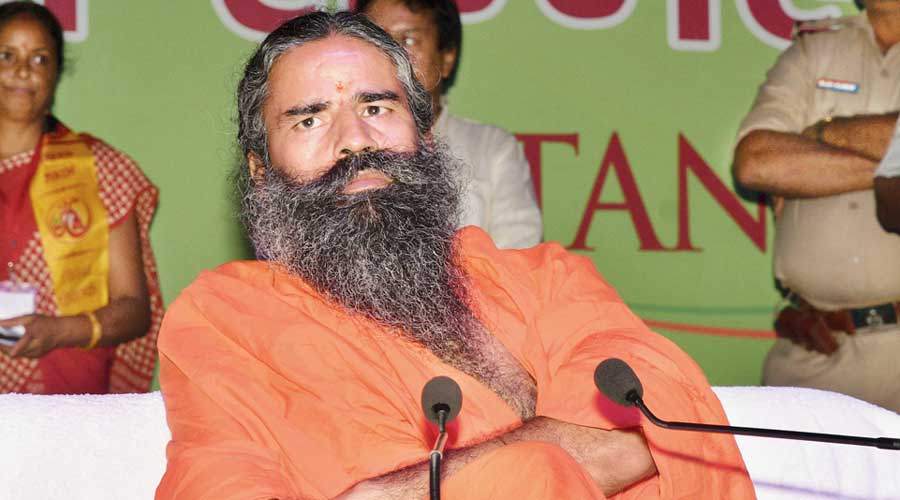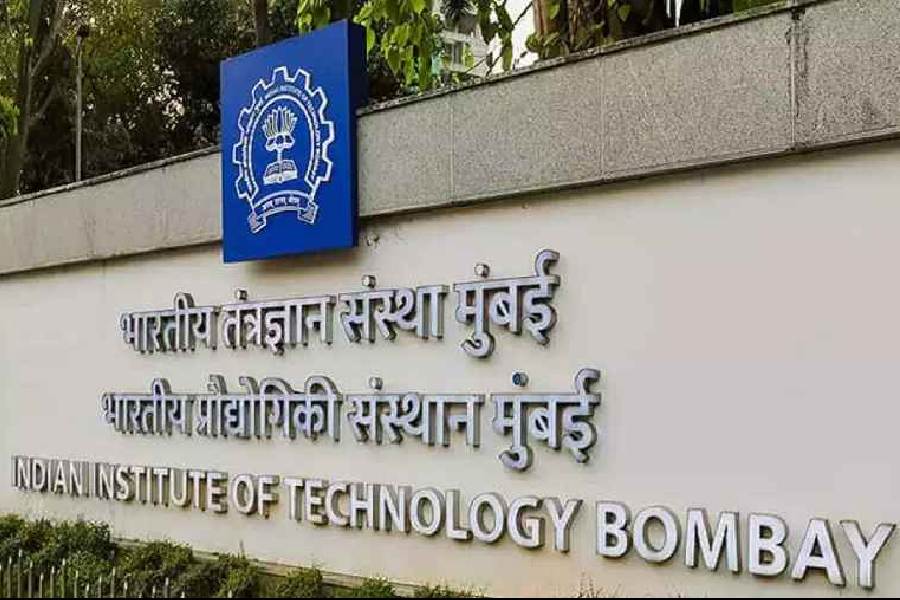A “Vedic school board” set up by the Patanjali Yogapeetha, whose trustees include Baba Ramdev, will teach pupils the “original” Manusmriti as part of promoting “core values” alongside the Vedas and Upanishads.
N.P. Singh, working chairman of the Bharatiya Shiksha Board (BSB), told The Telegraph the board would teach the Manusmriti at its Gurukul Schools — one of three kinds of schools it plans to affiliate, the others being Modern Schools and Guru-Shishya Parampara Schools.
The Manusmriti is an ancient text on human affairs that is viewed as having codified laws that formalised the caste system and gave women an inferior position in society.
Singh, a retired IAS officer, however, said: “We will teach the original text of the Manusmriti, which does not have wrong things like caste or disrespect for women. The functional distortions took place around the seventh century. We are not teaching those.”
A sceptical N. Sukumar, a Delhi University teacher, said the BSB should produce what it calls the “original Manusmriti” in the public domain.
“Let the experts study it,” he said, adding that he feared the BSB would impart a “Brahminical” education.
Such fears have been expressed by several academics since the government last month granted “equivalence” to the certificates of the BSB and another “Vedic school board”, the Maharshi Sandipani Rashtriya Veda Sanskrit Shiksha Board, bringing them on a par with other boards including the CBSE.
A source in the Maharshi Sandipani Board has said the Vedas and Upanishads would remain “the major component of the syllabus” although modern subjects will be taught.
Modern Schools
The BSB’s Modern Schools will teach modern subjects such as science, the social sciences, the humanities and commerce but the syllabuses will “integrate concepts from the Indian knowledge system”, Singh said.
“For example, in the subject of economics, the students will start with lessons on the concepts of economics, trade and commerce in the Vedas and other Shastras,” he said.
“The Rig Veda talks about blending materialistic and spiritualistic prosperity. The Atharvaveda and Kautilya’s Arthashastra contain many concepts on economics.”
Singh said the BSB’s physics syllabus includes the theory of the anu or small particles from Maharshi Kanad’s Vaisheshika Darshan. The Vedas' concept of gravitational law will be taught alongside Newton’s.
According to Singh, the Rig Veda says that anything sent up into space eventually comes downwards because of the “force of the earth”.
He said the theory of probability, taught in statistics, originates in the Jain philosophy of Syatavada that says nothing is definite. The Yantra Sarvasva of Maharshi Bharadvaja “deals with 108 kinds of need-based technologies” that will be part of the science syllabus.
“Geometry has its origin in the Rig Veda, whose Sulbha Sutra provides the basis for the various triangular and square shapes in which firewood is arranged for havans. Algebra evolved in India with contributions from Brahmagupta and Varahamihira. These will be taught too,” Singh said.
"Our traditional knowledge has been seamlessly and beautifully integrated into the syllabuses of modern subjects. Our students will be competent in the subjects taught and take pride in India's cultural journey, ancient heritage and wisdom."
On whether the BSB would differentiate between the Shramanic tradition, which does not believe in the soul or rebirth, and the Brahminic tradition that is accused of nurturing inequality, Singh said the board had focused on "the core values of the cultural journey".
"The core values in the Vedic texts, Gita and other texts are oneness, non-violence, truth and equality. The opening line of the Ishopanishad talks about the undifferentiated oneness of everything," he said.
Sukumar, the Delhi University teacher, said the values of oneness, non-violence and truth are basic tenants of Buddhism, which is part of the Shramanic tradition.
"It's a pitiable effort to appropriate Buddhism and Jainism, which are part of the Shramanic tradition and came up as a revolt against the Brahminical tradition," he said.
Several studies have traced the roots of the caste system to the Chaturvarnya system or four-fold division of society, as mentioned in the Purusha Shukta, the 19th hymn of the tenth Mandala of the Rig Veda. The Manusmriti is believed to have codified the caste order and made the inter-caste boundaries and practices like endogamy more rigid.
Singh said the Rig Veda spoke only about the division of labour, and the "distortions" happened later.
“Division of labour had nothing to do with birth within a caste. There are rishis like Rishi Mehi Das from the Shudra community. There have been women rishis like Maitreyi, Gargi, Lopamudra and many others. So the core values (that the BSB will teach) are very inclusive,” Singh said.
Sukumar challenged the BSB to include content against the caste system that prevails now. “Let them provide evidence that Buddhism was a part of Hinduism, which they are trying to tell students,” he said.
Singh said the BSB-affiliated Gurukul Schools would be similar to the Sanskrit schools running in the various states, and would focus on teaching Sanskrit texts like the Vedas, Upanishads, Brahmana Granthas and the original Manusmriti in addition to modern subjects.
Sukumar said this reflected an effort to have a "parallel schooling system rooted in the Brahminical tradition" and to “formalise the caste system”.
Singh said the Guru-Shishya Parampara Schools would teach only through the oral recitation of the Vedas. The certificates given to students passing out of these schools will not have equivalence.










